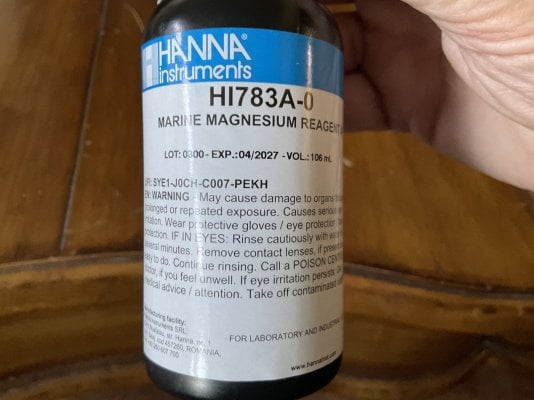My Hanna MAGNESIUM checker label for the liquid reagent “A” contains a warning re: “damage to organs through prolonged or repeated exposure”.
I have tried to determine what this liquid is and how hazardous its use and disposal might be. Also concerned about accidental commingling of all the various test reagents and other additives like Ca, Alk, Mag.
We tend to keep all of our reef chemistry in a fairly tight space.
please advise.

I have tried to determine what this liquid is and how hazardous its use and disposal might be. Also concerned about accidental commingling of all the various test reagents and other additives like Ca, Alk, Mag.
We tend to keep all of our reef chemistry in a fairly tight space.
please advise.





















